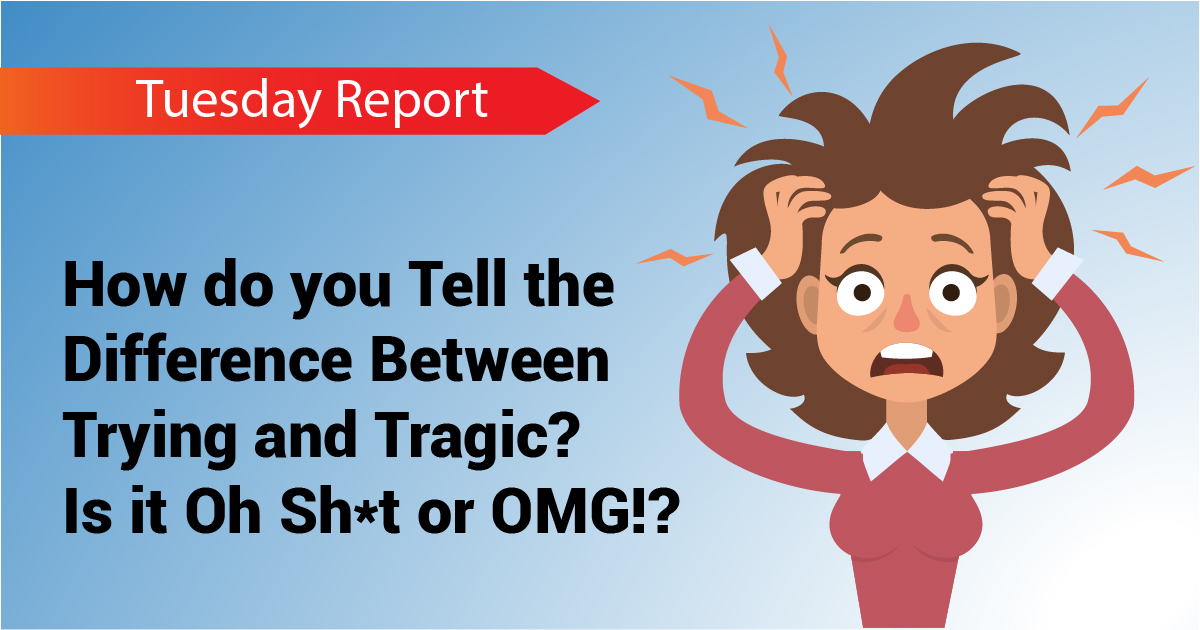Surprising words pop right out of my mouth when difficult life events happen to me, either trivial or tragic. It’s not like I meant to say it—stuff happened and there, I said it. When you react to bad things with expletives it’s probably not what your mother would have approved of when you were growing up.
What a person said when I was growing up could have grave consequences. I never actually had it happen to me, but a kid down the street from me growing up in Tomball, Texas did—he got his mouth washed out with soap for saying dirty words.
The threshold of getting into trouble in those early days for what you said was incredibly low. In our home you couldn’t use what were called substitute words like “gosh,” which was thinly veiled substitute for “God,” You couldn’t say “dang,” which was the gateway word for “damn,” which could very well lead your very soul to damnation. The folks of that generation took words very seriously.
The use of expletives can be offensive, and when greatly overused, they can be meaningless because of their overuse. Even today I’m quite cautious about expletives. What we say, the words we use, are among the most powerful acts we humans do in terms of our personal impact.
I know that some will disagree, but I would at least excuse people for their verbal reactions when things happen—it certainly happens to me. I find myself reacting with my two “go to expletives,” which are “Oh, Sh*t” in the smaller challenges, and the more full-throated “OMG!” when things get to a much higher level on the disaster scale.
I think the biggest challenge I have is the differences between the small situations and the big ones. Is this situation an “Oh sh*t!” one,” or full out “OMG!” moment? I tend to react in much the same way to a mosquito bite as to the fear of falling off a mountain—my reaction is often the same in small situations as big ones
Here are some principles that I’ve learned about managing my emotional reactions to what are the jolts, big and small, that happen to me throughout the day.
- When You’re Jolted by a Daily Event—Oh Sh*t (something small) or an OMG! (a significant crisis)—Ask Yourself Which Is It? Compare what’s happening in your world to the emotional reaction in your mind. Are you over-reacting or underreacting? We were given emotional reactions for a reason in times of danger, but we will live a happier, more effective life by keeping our reactions appropriate to the situation.
- Most Situations We React Strongly to Are Easily and Quickly Resolved in a Day or Less—they just look horrible at first reaction. At the first of the week, at the same time, my computer and iPhone crashed —without technology my day doesn’t happen. It turned out that the issue with my computer was a setting that took a nanosecond to fix and an the issue with my iPhone was resolved with a two-hour trip to the Apple Store. Most issues are short-lived and are resolved quickly—it’s the emotional toll we’ve inflicted on ourselves that lives on.
- Don’t Catastrophize What’s Happening. I was taught to see the dangers ahead of me, and I constantly see a minor event as turning into a major catastrophe. If I’m not careful a minor cut on my arm can lead to an imagined arm amputation in my head. In the theater of your mind, create a happy ending to what’s happening.
- Most Things We Worry about Long Term—They Never Happen. I used to worry about issues for months and years, tossing and turning in my bed through the night—until I realized that the things you worry about rarely happen—they just don’t. The unexpected things are what you’ll have to deal with. So why spend the time worrying about what is never going to happen?
- Live Conservatively —Amass Resources to Avoid Emotional Crises. A year ago there was a flurry of articles that said that a $400 unexpected expenditure could sink a family—$400 wasn’t an “Oh Sh*t,”—it was a true “OMG!” During this pandemic we have learned that we don’t need to drive our cars as much, buy gasoline, purchase new clothing or eat out on the scale we thought necessary When you have the resources to cover difficult situations, what used to be major crises becomes minor events. Savings and serenity are closely related.
Our emotional reactions to the events of each day explode from within us with feelings of “Oh Sh*t” or “OMG!” without ever having thought about it. Nobody ever said, “Well this is a perilous situation—I think I’ll get emotionally overwrought and see what happens.” Our emotional responses erupt uninvited from within us, and then our logical mind starts working to sort out what’s really happening and deciding what to do next.
Visceral emotional responses are a good place to begin, but quickly moving into a problem solving mode will save us emotional distress and the time it takes to analyze issues and solve them. Living in a state of fear, anger and overreaction will ruin our lives and our health. We can never avoid the emotional jolts of the day. We can use them as a springboard to move forward to create a better foundation to solve present issues and live a better life.






